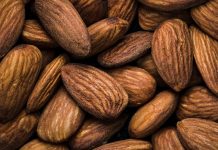
Heart disease remains a leading cause of death globally, with diet significantly influencing its incidence and progression.
Particularly, diets high in cholesterol have long been associated with an increased risk of heart disease.
This review explores the research evidence illustrating the connection between high-cholesterol diets and heart disease, primarily focusing on the development of atherosclerosis, coronary artery disease, and the associated risks of clots leading to heart attacks and strokes.
Cholesterol and Plaque Formation
Cholesterol is a necessary substance for the normal functioning of the body, contributing to the synthesis of hormones, vitamin D, and aiding in food digestion.
However, when cholesterol levels in the blood are excessive, typically due to a diet rich in cholesterol and saturated fats, it can contribute to plaque formation on arterial walls – a condition known as atherosclerosis.
This cholesterol-rich diet, often sourced from foods like red meat, full-fat dairy, and fried items, leads to an increase in low-density lipoprotein (LDL) or “bad” cholesterol.
LDL transports cholesterol to the arteries where it tends to deposit and form plaque.
Studies, such as the one by Witztum and Steinberg (1991), provide evidence of oxidized LDL being a key player in plaque formation.
The authors highlight that oxidized LDL promotes inflammation and contributes to the accumulation of cholesterol in arterial walls, promoting atherosclerosis.
Development of Coronary Artery Disease
When atherosclerosis affects the coronary arteries, which supply blood to the heart, the condition is known as coronary artery disease (CAD).
This buildup of plaque in the coronary arteries reduces the space for blood flow, limiting the supply of oxygen-rich blood to the heart.
One compelling study by Jakobsen et al. (2009) discovered an association between the intake of saturated fats (that raise LDL cholesterol levels) and an increased risk of CAD.
Over 350,000 participants were included in this review, which found that replacing saturated fats with unsaturated fats reduced the risk of CAD.
Clot Formation and Risk of Heart Attacks and Strokes
In addition to narrowing the arteries, plaque buildup can increase the risk of clot formation. If a clot forms and blocks the blood flow near the site of a plaque, it can lead to a heart attack or stroke.
If the clot obstructs a blood vessel that feeds the heart, it triggers a heart attack, and if it impedes a blood vessel that feeds the brain, it results in a stroke.
A notable study by Yusuf et al. (2004) in the INTERHEART study, a case-control study of acute myocardial infarction across 52 countries, found that abnormal lipids (such as high cholesterol) were one of the leading causes of heart attacks worldwide, further substantiating the connection between high cholesterol diets and heart disease.
Conclusion
Collectively, the research evidence clearly signifies the detrimental effects of high-cholesterol diets on heart health.
The consumption of such diets leads to the development of atherosclerosis and coronary artery disease, increasing the risks of clot formation, heart attacks, and strokes.
Although some cholesterol is necessary for bodily functions, an excessive amount, usually driven by dietary intake, can contribute to severe health complications.
As such, to mitigate heart disease risk, dietary interventions are crucial.
Limiting the intake of high-cholesterol and high-saturated-fat foods and promoting a diet enriched with fruits, vegetables, whole grains, lean proteins, and unsaturated fats can substantially decrease the prevalence of heart disease.
However, further research, particularly longitudinal studies, are required to better understand the long-term impacts of high-cholesterol diets on heart disease and validate these dietary recommendations.
Copyright © 2023 Scientific Diet. All rights reserved.








